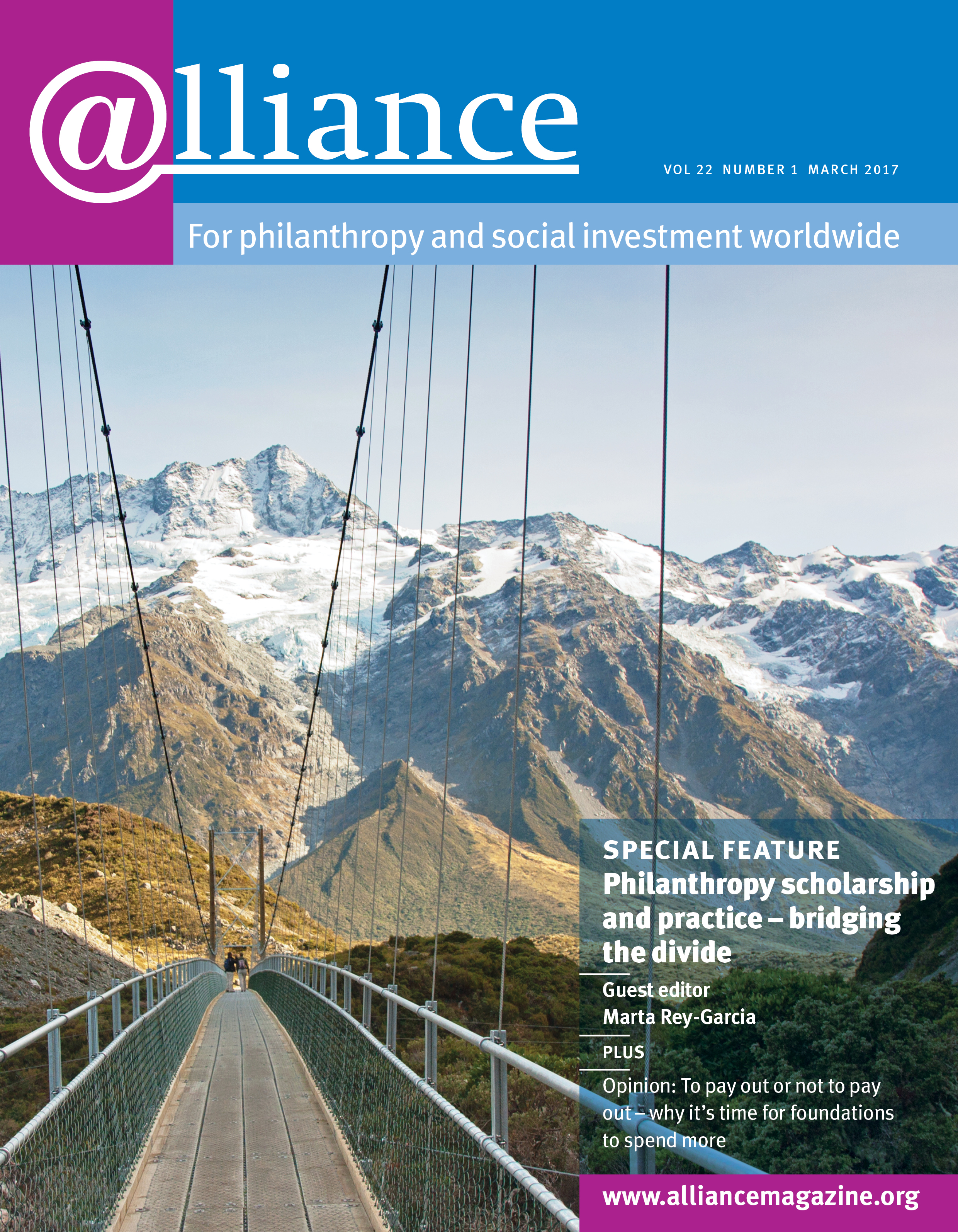Three years ago, the two infrastructure organizations for foundation philanthropy in Canada, Philanthropic Foundations Canada (PFC) and Community Foundations of Canada (CFC) joined forces with a national partnership of scholars dedicated to creating a more substantial body of information and analysis on the catalytic role of grantmaking foundations in social change. The work of this partnership has led to a significant increase in the number of scholars engaged in the study of philanthropy.
Organized philanthropy in Canada is still a relatively recent phenomenon. We have only slightly over 5,000 private foundations, about the same number of public foundations, and the academic study of grantmaking philanthropy began only in the last 20 or so years. Much of it has focused not on grantmakers themselves, but on their grantees and on donors more generally.
Three forces, however, are catalysing more philanthropy scholarship and training in Canada today: digitization, demographics and diversity.
Through digitization, scholars and practitioners are gaining access to new and important data sets. Canada has made available in machine-readable form a huge data set on charities and foundations, through our national regulator, the Canada Revenue Agency. Digitization has also accelerated the dissemination of data on patterns of foundation granting, on the location and size of grantmakers, and on their interests. The Canadian government is opening up its database of grants and contributions in a remarkable commitment to data transparency and access.
Philanthropy is no longer only about benevolence, it’s about having impact on the complex problems that face the next generation.
Demographic change and the rise of the large millennial generation is also a major force affecting philanthropy research and training. As younger people enter the world of social purpose, their views are shifting the field of study of philanthropy to that of the study of social purpose activity in whatever form.

Over 50 per cent of the population in Canada’s largest city, Toronto, were born outside the country.
Philanthropy is no longer only about benevolence, it’s about having impact on the complex problems that face the next generation. The young are increasingly demanding better training in social action. As a result, Canada’s first graduate and executive education programme in philanthropic and non-profit leadership began three years ago at Carleton University in Ottawa.
Finally, we have a much more diverse and urbanized population in Canada than we did 25 years ago. For example, over 50 per cent of the population in our largest city, Toronto, were born outside Canada. How does this affect the study of philanthropy?
It brings new players and new money to the table and new practitioners to the field. It also fosters an interest on the part of governments representing a diverse and globally-linked population to attract social purpose organizations and philanthropy into partnership to attack complex social problems such as environmental sustainability and social exclusion.
To act as effective partners, and to have more impact, philanthropists need to be better equipped with information, and with opportunities for learning their craft and sharing best practices. This is where the partnership with academia has come in.
Over the last three years, Canadian academics have been enlisted in a collaborative effort to understand and to describe through case studies and analysis how Canadian foundations are working together to bring about change, whether through influencing public policy or through reinforcing community networks and capacity on the ground. It is important for foundations to learn about each other, to have models and gain insight into what works as more evidence is collected on the impact of philanthropic activity.
PFC and CFC intend to pursue this partnership over the next few years, working with scholars both in Quebec and in English Canada, recognizing our two cultures of philanthropic thought and practice. We are also bringing a new perspective from Europe to our understanding of the philanthropic ecosystem in Canada with the naming of a first international philanthropy fellow, Michael Alberg-Seberich of Berlin, who will begin his work in Canada in 2017.
This formal study of philanthropy will contribute not only to greater effectiveness of foundations but also to better training of people aspiring to be philanthropic leaders.
Hilary Pearson is president, Philanthropic Foundations Canada.
Email hpearson@pfc.ca
Jean-Marc Fontan is a professor in the Department of Sociology, University of Quebec in Montreal.
Email fontan.jean-marc@uqam.ca






Comments (0)